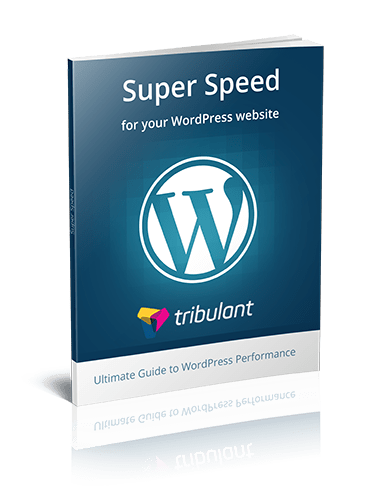
How to Increase the Speed of Your Website?

With the latest algorithm changes in search engines, it has become important to focus on the website’s speed. If the website takes more time to load, the overall bounce rate will increase and it will hamper the overall business.
Regardless of your business size and industry, website speed plays a crucial role in improving a website’s performance. On this note, let’s have a look at the top ways to boost your website’s speed and thrive on success.
- Minify CSS and JavaScript
- Compress Images
- Server Caching
- Optimize your Website
- Improve Server Response Time
- Headers
- Use Content Delivery Network (CDN)
- Minify HTML
- Reduce DNS Lookups
- Improve Caching
- Enable Gzip Compression
Minify CSS and JavaScript
Minifying JavaScript and CSS files will decrease the size of your web page, making it lighter for visitors. Some website developers prefer to use a third-party application to minify their code. Different web browsers support different coding languages, thus it is important to use a minifying tool that is compatible with all the browsers.
Compress Images
By compressing images you are helping your site reduce its total load time. It has been observed that 60 percent of general website data refers to images. So, if your image is heavy, it will take much time to load your web page. Hence, it is preferable to compress images before uploading them on the website. There are several free tools available that you can easily use to compress images.
Server Caching
Server caching speeds up the loading time of a website by temporarily storing static resources in memory or on the hard disk. The server holds them in the cache so next time when any visitor comes looking for those resources, they are served from the cache instead of sending requests again and again.
In order to make it work, you need to update your server configuration file with appropriate header information. Once the information has been added, the resources will be cached by the server and delivered when required rather than being regenerated for each client request.
Optimize your Website
Make sure to use images with smaller dimensions and also you should make the background white. Some blogging platforms directly write HTML code on pages without formatting it which makes the browser’s job more difficult by opening up dozens of connections thus increasing load time. Hence, it is important to check your website’s code before going live. If you are using some theme on your website, ensure the code is optimized and there is no additional script that is only for decoration purposes.
Improve Server Response Time
Keep your server response time as low as possible, ideally less than 200 milliseconds. It helps in faster page loads which are good for SEO services too. Good hosting with SSDs can help boost up this performance. In addition, if you are using redirect links, avoid making an endless number of redirections because each redirection requires an additional round trip between the user browser and server, hence slowing down the site speed. It’s better to invest in a good quality hosting service that will cater to your customers seamlessly.
Focus on good hosting especially if you run an Ecommerce business. Also, it is important to avoid unnecessary 404 errors while making changes to your website. Visitors are more annoyed with broken links than slow-loading web pages. Check for broken links at regular intervals and fix them immediately.
Headers
Using Expires headers in your website’s files will help decrease the number of requests it has to handle. The Expires header tells the web browser how long it can cache a file, so that next time when another request comes for this file, it does not need to download again from the server. In addition, it also decreases the server’s bandwidth consumption.
Use Content Delivery Network (CDN)
With CDNs, you can display static content like images and other media on servers all over the world instead of hosting them on one server only. This way you are decreasing load time while getting maximum availability too because these servers are geographically dispersed across different parts of the world. So if someone wants to download an image or media file that is hosted by a CDN, they get this data faster than before.
Minify HTML
Minifying HTML will not only reduce the size of your web page but also help in removing unnecessary whitespace and comments that are inserted into the code. This might result in improving the load time of your webpage. Also, it is advisable to remove unnecessary JavaScript code because it takes much time to execute. Take the help of a developer for performing this task and ensuring the overall HTML code is optimized.
Reduce DNS Lookups
Every time when a user comes to your website, their browser needs to resolve its IP address through DNS lookup which can increase load times because usually, it takes time for DNS servers to respond. You can use PageSpeed’s Mod_IP module or CloudFlare service to automatically reduce this load time. Check with your hosting provider to check the DNS settings.
Improve Caching
Always try upgrading your hosting service with a good caching plugin like WP Super Cache or W3 Total Cache that automatically caches all pages of your website. You can set long caching times as well to further boost up this performance. If you use the WordPress platform, then you have the option to install a caching plugin to improve your website’s performance in no time. The tool helps you take your site offline during heavy traffic times, thus giving you maximum availability.
Enable Gzip Compression
If gzip compression is not activated on your site then there is no point in speeding up because this feature compresses files before transferring them over the internet. This feature reduces the size of data transferred by 80 percent when compared to uncompressed original file size. There are several free tools available that you can use to check if your web server has GZIP compression or not.
Wrapping up!
Take care of these aspects to ensure your website loads faster and improve the overall SEO. As the website loading speed is becoming an important factor, no business can overlook this factor. Get ahead of the curve by optimizing your website’s loading speed.
With over 13 years of experience as a leader in digital marketing, Mansi Rana is Managing Director of EZ Rankings. Passionate about all things data; providing actionable business intelligence in digital, future tech; and venture bubbles categories for everyone, everywhere.
Website & Email Hosting
Get the best website & email hosting for speed, security, and peace of mind. No restrictions. Freedom to do what you need in order to run your business.



No comments yet